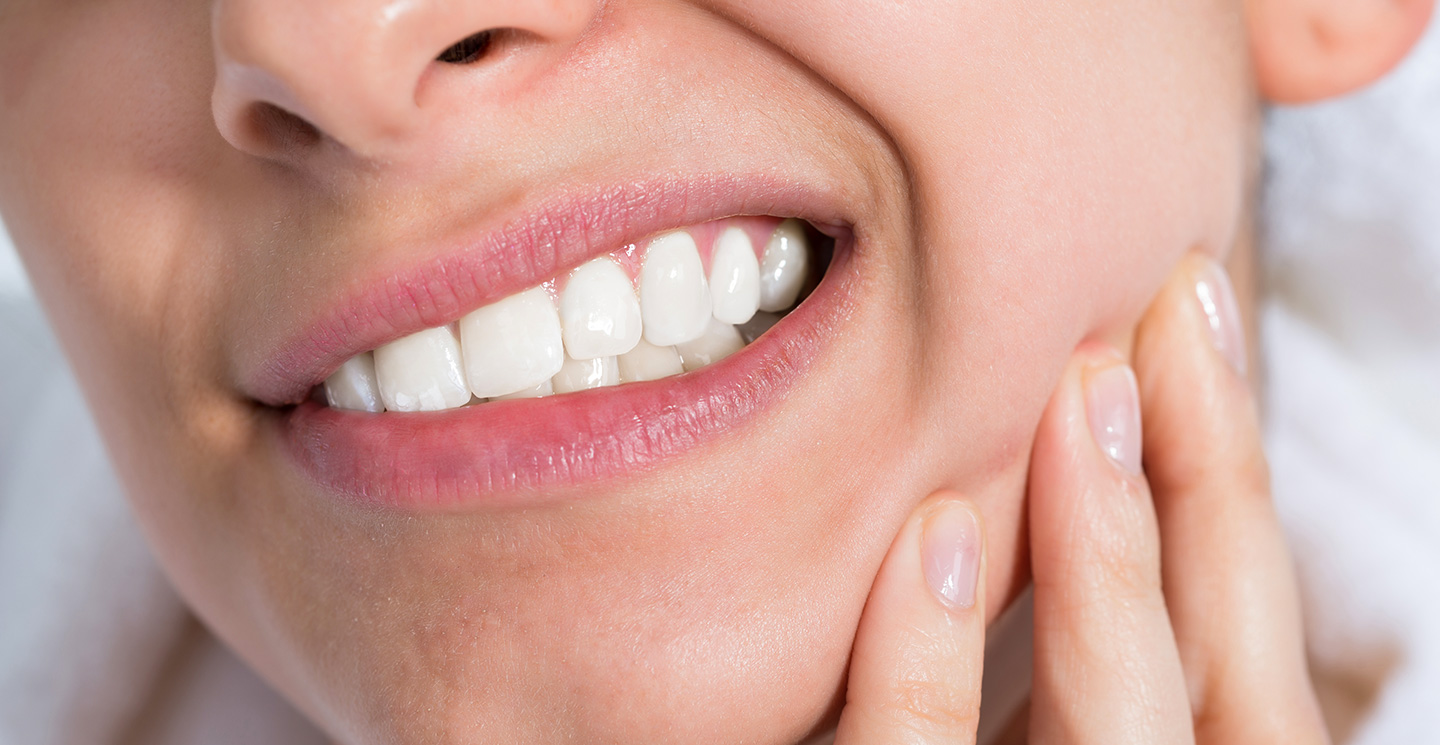Sensitive teeth are a common problem that many people experience at some point in their lives. The pain and discomfort associated with sensitive teeth can be mild or severe, and it can affect your quality of life. In this blog, we will explore the causes, symptoms, and treatments for sensitive teeth.
Causes Of Sensitive Teeth
Sensitive teeth occur when the protective layer of enamel on your teeth becomes worn down, exposing the underlying layer of dentin. Dentin is composed of tiny tubes that lead to the nerve of the tooth, which is why you experience pain or discomfort when you eat or drink something cold, hot, sweet, or sour. There are several factors that can cause the erosion of enamel, including:
- Brushing too hard: Brushing your teeth too hard or using a hard-bristled toothbrush can damage your enamel and lead to tooth sensitivity.
- Acidic foods and drinks: Consuming foods and drinks that are high in acid, such as citrus fruits, soft drinks, and fruit juices, can erode the enamel on your teeth.
- Gum recession: Gum disease or brushing too hard can cause your gums to recede, exposing sensitive tooth roots. You can get checked this symptom with a Gum Specialist.
- Grinding your teeth: Bruxism, or grinding your teeth, can wear down the enamel and expose the dentin.
- Tooth decay: Tooth decay can erode the enamel and lead to tooth sensitivity.
Symptoms Of Sensitive Teeth
The most common symptom of sensitive teeth is pain or discomfort when you eat or drink something hot, cold, sweet, or sour. The pain can be sharp and sudden, or it can be a dull ache. Other symptoms of sensitive teeth include:
- Pain or discomfort when brushing or flossing your teeth.
- Swollen, red, or bleeding gums.
- Headaches or jaw pain.
- Difficulty sleeping due to tooth pain.
- Sensitivity to air or pressure.
Treatments For Sensitive Teeth
There are several treatments available for sensitive teeth, depending on the cause of your tooth sensitivity. Here are some of the most effective treatments:
Desensitising toothpaste:
Desensitising toothpaste is the first line of treatment for sensitive teeth. This type of toothpaste contains compounds such as potassium nitrate or strontium chloride, which work to block the tiny tubes in the dentin and reduce tooth sensitivity. It is important to use desensitising toothpaste consistently and for a period of time, usually a few weeks, to see results. You should also avoid using a whitening toothpaste, as it can make tooth sensitivity worse.
Fluoride treatments:
Fluoride is a mineral that helps to strengthen tooth enamel and reduce tooth sensitivity. Your dentist may recommend a fluoride treatment, which involves the application of a high-concentration fluoride gel or varnish to your teeth. This treatment can be done in the dental office or at home, and it can be effective in reducing tooth sensitivity.
Dental sealants:
Dental sealants are a thin, plastic coating that is applied to the chewing surface of your molars to protect them from decay. They can also be used to cover the exposed tooth root and reduce sensitivity. Your dentist will clean and dry the affected tooth and apply a special bonding agent before applying the sealant. The sealant will then harden, providing a protective barrier for the tooth.
Gum grafting:
If gum recession is the cause of your tooth sensitivity, your dentist may recommend gum grafting. This procedure involves taking tissue from the roof of your mouth or from a donor and attaching it to the affected area of your gums. The new tissue will cover the exposed tooth root, reducing sensitivity and improving the appearance of your gums.
Root canal treatment:
In severe cases of tooth sensitivity, a root canal may be necessary to remove the nerve of the tooth. During a root canal procedure, your dentist will remove the infected or damaged nerve tissue and clean the inside of the tooth. They will then fill the tooth with a special material and seal it with a filling or crown. A root canal can be an effective treatment for severe tooth sensitivity and can prevent further damage to the tooth.
If you are experiencing tooth sensitivity, it is important to see your dentist for an evaluation. Your dentist can determine the cause of your sensitivity and recommend the appropriate treatment. By taking good care of your teeth and following your dentist’s recommendations, you can alleviate tooth sensitivity and improve your oral health.
Preventing Tooth Sensitivity: Must Follow These Norms
Preventing tooth sensitivity involves taking good care of your teeth and gums. Here are some tips to prevent tooth sensitivity:
- Brush and floss your teeth twice a day.
- Use a soft-bristled toothbrush and avoid brushing your teeth too hard.
- Use fluoride toothpaste.
- Avoid consuming acidic foods and drinks.
- Wear a mouthguard if you grind your teeth.
- Visit your dentist regularly for checkups and cleanings.
Conclusion
sensitive teeth are a common problem that can cause pain and discomfort. The best way to prevent tooth sensitivity is to take good care of your teeth and gums and to visit your general dentist regularly. If you experience tooth sensitivity, there are several treatments available to reduce the pain and discomfort. Remember, early detection and treatment can prevent further damage to your teeth and gums, so don’t hesitate to see your dentist if you experience any tooth sensitivity.
![]()
